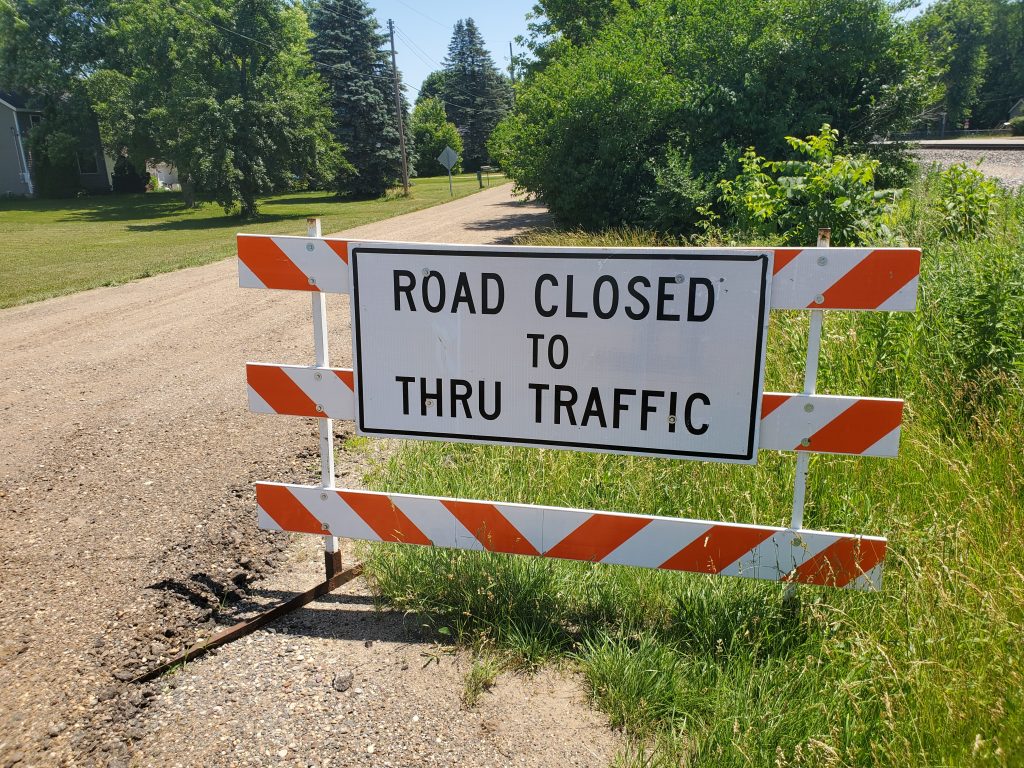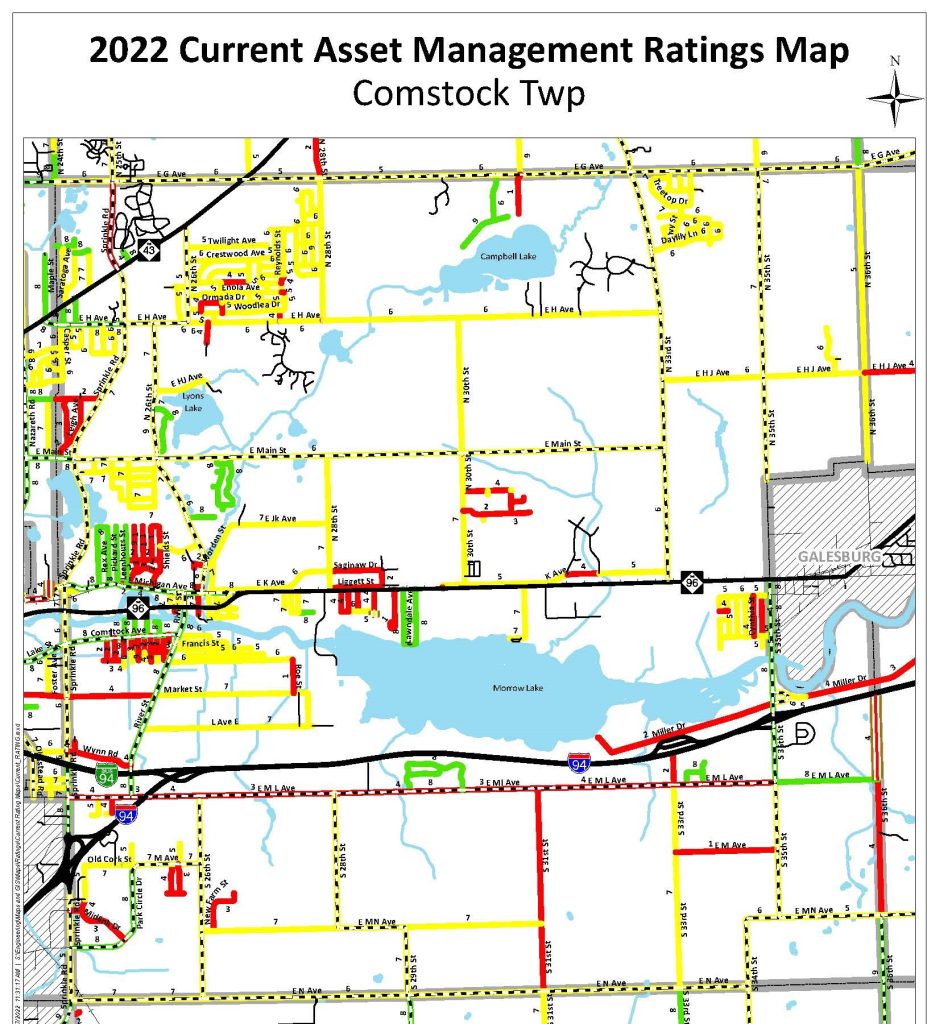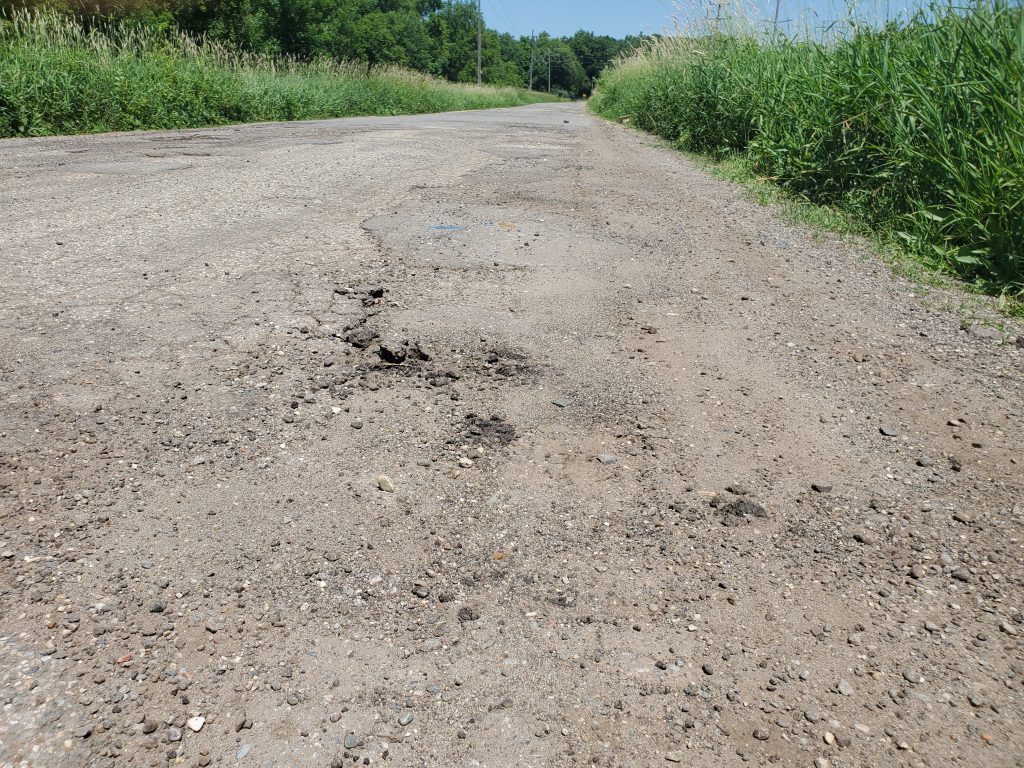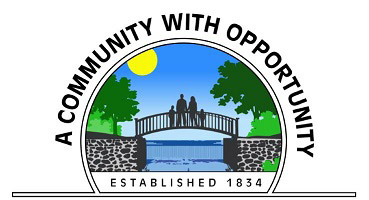Fixing our roads with the Road Commission of Kalamazoo County

Construction season is in full swing in west Michigan.
But which road get worked on first?
Sarah Phillips, the Communications Administrator for the Road Commission of Kalamazoo County (RCKC) says it’s all about balance.
“We review all our possible projects for pavement conditions, traffic patterns, public feedback and their cost. Our goal is to make sure we’re doing the right fix, at the right time. We really want to balance what we can afford with what’s best for the roads in a community,” Sarah said.
They look at the condition of all the roads in the county and work to keep them in good condition, which RCKC calls asset management.
“Asset management helps us find what is the right fix for the right time. Our goal is to insure we’re spending money in a way that justifies the return on our investment. Is the money we spend worth the years of life you will gain from the road we fix,” Sarah said, “asset management help guide what, when, and where we apply treatments to roads. Asset management is a systematic approach to selecting the best investment at the right time to maximize the life of the asset being measured, in this case, road surface conditions. This approach is also used for bridges and many other infrastructure features. It is all about balancing investment with the years of life gained in return.”
The goal is to maintain our infrastructure in good condition, making periodic investments in the maintenance of the pavement, rather than letting it deteriorate to a level that requires a major investment to bring it back to a good condition.
Periodic maintenance investments typically cost less than the major investment required to rebuild a road.
Much like a vehicle, there is always up keep necessary such as oil changes, to prolong it’s life.
The goal is keep the good roads in good condition and invest in rebuilding the bad ones when we can.
Periodic maintenance, working on roads over time to keep them in working condition, is far more affordable than completely repairing a failed road.
One valuable tool the RCKC has at its disposal is the PASER rating.
“PASER stands for pavement surface evaluation and rating. We use the system to track the condition of our roadways. The system uses a number of key engineering principles to clearly and simply communication the condition of a road in a way that’s consistent across the state,” Sarah said.
New roads are rated “10” and only stay that way for a year before being downgraded to a “9”
From there, roads rated from “8” and above are in good condition
A road rated from 5-7 is considered fair
A poor road is rated a 4 or below.
Sarah described a failed road as “expensive to fix, typically we need to commit to a reconstruction project. The money we need to spend on a failed road can limit other needed maintenance projects. For example, it would be a matter of balancing the worth of completely reconstructing one old, broken down car, versus maintaining five other drivable cars in good condition.”
Our goal is to stop that from happening.
And to do so Bret Padgett says “we try to focus on a mix of fixes, based on what the road commission recommends.”
The township focuses on smaller projects every year and then spends leftover money on the big fixes.
Bret said that, “for example, roads that just need a chip seal are a lot less expensive than roads that need a full reconstruction, so we try to focus a lot of the dollars on keeping the good roads good.
However, townships in Michigan aren’t getting money from the state to do those fixes.
Public act 51 provides money for road repairs to the state Trunkline, county road commissions, cities, and villages.
“The main thing is that townships don’t receive money directly for roads, that’s a misconception,” Bret said
Instead, we work with the road commission to figure out our funding.
Bret said, “Participation funds, or par funds, are allocated to townships based off population.”
Then we’re required to match par funds to receive them.
Comstock Township is spending roughly $590,00 on our roads this year, using a millage approved in 2016.
The road commission allocated $250,000 in par funds for the township based on our population, so this year we’re spending roughly $840,000.
Bret said, “we usually contribute a little more than we have to.”
Since Comstock approved a roads funding millage in 2016, Comstock has been able to greatly improve our roads
There’s still work to be done though, especially rebuilding bad roads.

Sarah says the map above from the Road Commission of Kalamazoo County is a representation of Comstock township’s surface rating summary.
Each road in the county is rated.
Sarah said that “Federal aid eligible roads, generally primary roads, in the state are evaluated every two years, 50% annually. Non-federal aid roads in Kalamazoo county are evaluated on a rotating plan every 3 years.”
The roads on the map are color coordinated to their condition .
Bret said that “anything rated 8,9,10 is green on our map; 5,6,7 is yellow; 1-4 is red.”
About 32% of our roads are good, 46% of our roads are fair, and 22% are bad.

We’re working to turn that map exclusively yellow and green
Bret said that “we look for around 6 and a half, that’s the goal for the entire township”
This year the township is taking a different approach to our roads.
“Based on the road commission’s recommendations, we didn’t do a lot of the maintenance projects because of the price of asphalt,” Bret said, “so, we focused mainly on the reconstruction project, which is the norm, but because of the price of asphalt we’re going to focus on the chip seals and maintenance next year.”
In another 5-years we’ll look at what’s best for the township’s roads
Sarah said the Road Commission of Kalamazoo County will “work with our partners to develop a 5-year plan, based off the needs of their community and the available budget. We can estimate the approximate life cycles of many roads and use that to determine the best way to get the most out of our road investments. We can collaborate with other agencies so we can balance projects to make sure they’re as cost-efficient and non-disruptive as possible for the public. Then we review these projects annually and ensure they’re still the best plan for the community.”
She said that a five year plan is developed for a variety of our infrastructure assets based on balancing asset management with available budget.
Plans are developed determining what fixes can gain maximum return on investment.
RCKC annually partners with our township governments for determining the local road improvement priorities and developing 5-year plans considering asset management data.
The plan is reviewed ever year to make sure it’s the best approach for community.
We’ll all keep working to make sure the roads you use everyday are safe to drive.

